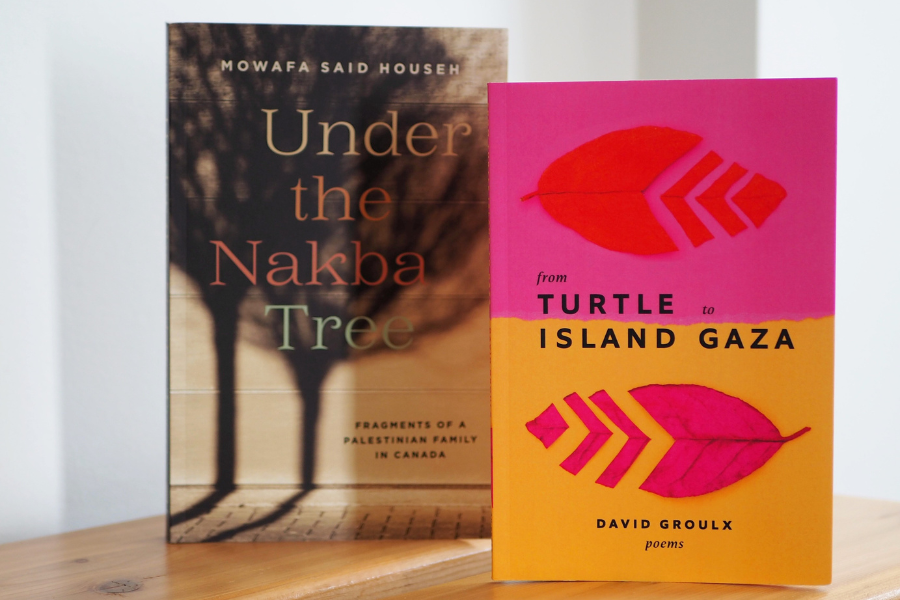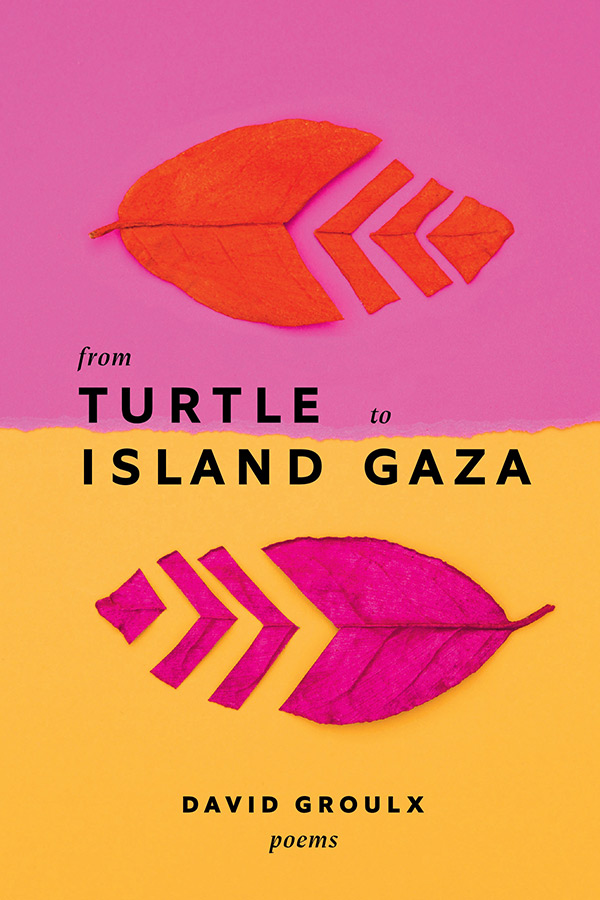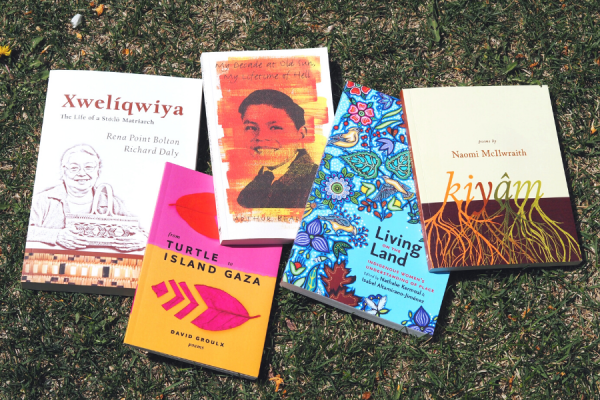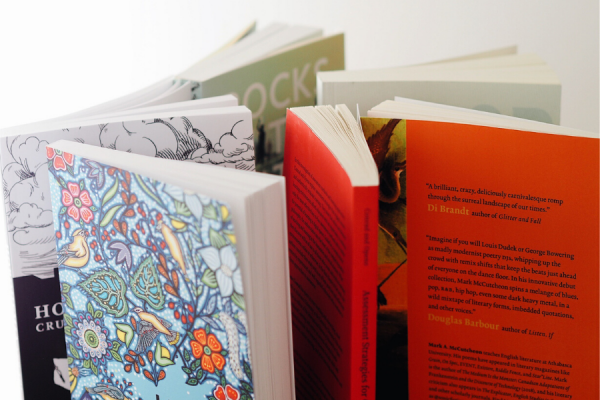Palestinians have been advocating for decades for the return of land that was occupied by Israel in the late 1960s. Here too, in Canada, a land that has been occupied for hundreds of years, discussions of returning land continue to be deemed radical and impractical.
In From Turtle Island to Gaza, David Groulx draws a powerful comparison between Indigenous Peoples in settler Canada and the people of Palestine. “Colonialism is a shared experience,” writes David Groulx in the preface to From Turtle Island to Gaza. “I’ve always known that, and I’ve always known that the Indigenous peoples here on Turtle Island were not the first or the only peoples to endure this long execution.”
The brief, yet powerful poems in From Turtle Island to Gaza ground the abstract issues of colonization into heartfelt human terms that remind readers that colonialism is not a historic concept, it is a current reality. Touching on cultural appropriation, police prejudice, and the loss of Indigenous languages, Groulx offers an expression of solidarity with the people of Palestine and a message of hope for colonized peoples. References to Palestine’s literary canon stand alongside Indigenous language and experience, creating a rich portrait of Canada and Palestine’s pasts and presents. Willing to unsettle his reader, Groulx forces us to question our complacency and urges settlers in Canada to think more deeply about decolonization and reconciliation.
Groulx is not the only person to observe the similarities between the suffering in Indigenous and Palestinian communities resulting from the loss of land and family. Mowafa Said Househ grew up in Edmonton as a visible minority and a Muslim. His parents fled Palestine in 1948 and arrived in Canada in the 1970s. In the year 2000, when Househ visited his family’s homeland of Palestine at the beginning of the Second Intifada, he witnessed the effects of prolonged conflict and occupation. His experience not only inspired him to tell his story but awakened him to the intergenerational and colonial traumas he shares with the Indigenous people of Turtle Island.
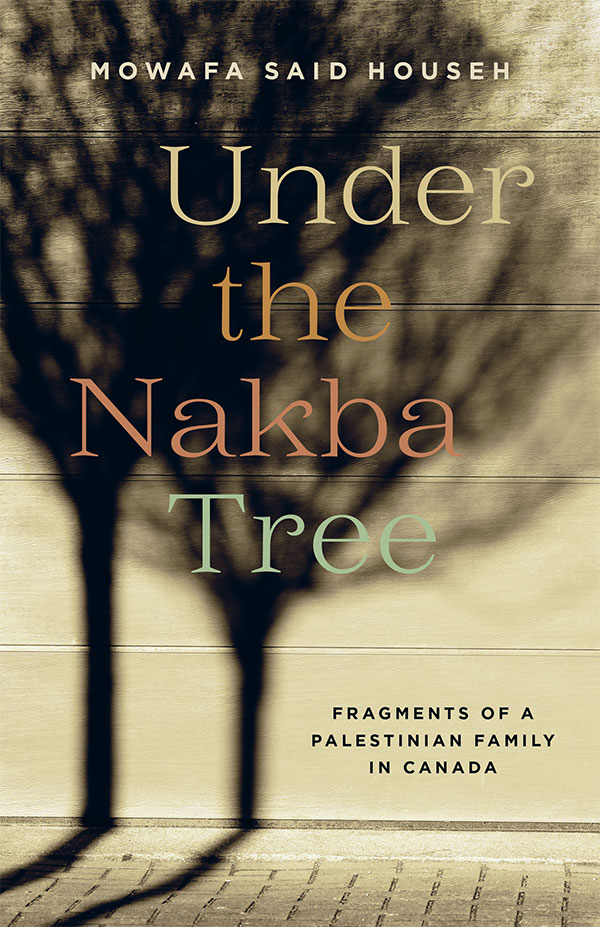
In his memoir, Under the Nakba Tree: Fragments of a Palestinian Family in Canada, Househ observes that “Arab refugees are not the only people who have faced forced displacement from traditional lands and intentional settler policies of trying to decrease life chances in emerging generations.” The parallels he draws between his family’s story of fragmentation and displacement from Palestine and the displacement of Indigenous peoples from their land in what is now settler Canada are an offering of shared understanding. In his words, “Home and land are inseparable in our psyches and hearts.”
